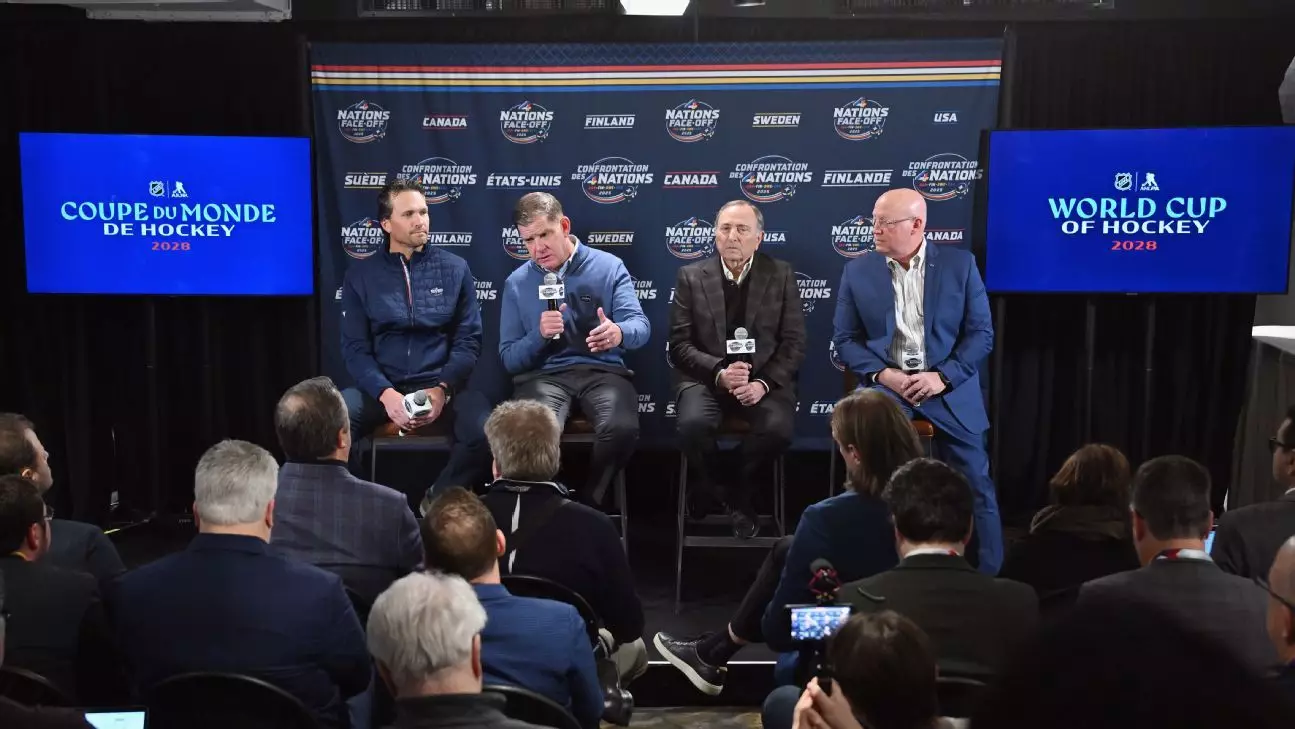As the global hockey community eagerly anticipates the 2028 World Cup of Hockey, recent announcements from NHL Commissioner Gary Bettman and NHLPA Executive Director Marty Walsh promise to transform the international landscape of the sport. After nearly a decade of setbacks and missed opportunities—culminating in the absence of NHL players in Olympic participation since 2014—the upcoming events signal a commitment to showcasing the world’s best talent on an international stage every two years.
NHL players have long yearned for the opportunity to don their national jerseys and compete for international glory. With the recent announcement, Bettman confirmed that not only will players be able to participate in the 2026 Winter Olympics in Milan, but they will also return for the World Cup just two years later in 2028. This commitment to a regular schedule of international competition marks a significant shift in the hockey calendar—a move that both players and fans have been clamoring for.
The nostalgia surrounding previous tournaments lingers in the minds of hockey purists who relish the intensity and quality of best-on-best competition. The last World Cup of Hockey held in 2016 featured a brilliant blend of skill and rivalry that had not been seen in years. With stars like Connor McDavid and Auston Matthews openly advocating for their chances to represent their countries during their prime years, fans can only expect more exhilarating showdowns in the upcoming tournaments.
One notable difference between past tournaments and the proposed World Cup is the absence of “melded teams” like Team Europe and Team North America. The 2028 tournament promises to follow a more traditional format, featuring teams comprised solely of players from their respective countries. This return to national pride will undoubtedly amplify the competitive spirit and fan engagement surrounding the event.
Moreover, Bettman has hinted at expanding the tournament, anticipating at least eight participating teams. While the precise structure remains under discussion, the prospect of including a broader selection of nations adds an intriguing variable to how teams prepare and strategize. The NHL will also welcome bids from European cities wanting to host the tournament, creating excitement about potential venues steeped in hockey tradition.
One of the most pressing and complex issues surrounding these international events is the status of Russia. Following the country’s invasion of Ukraine, Russia has faced bans from international sports competitions, including ice hockey. While Russian players express their desire to return to the limelight, it remains uncertain how the ongoing political climate will influence their participation in the World Cup and the Olympics.
Walsh acknowledged the remarkable skill of Russian players, expressing hope for a resolution that would allow their participation again. Yet, both the NHL and the NHLPA are aligned with international governing bodies regarding security and political concerns. The NHL’s current reluctance to include Russian teams underscores the multifaceted challenges of navigating the intersection of sports and global affairs.
The announcement of the World Cup serves as a testament to the rejuvenated relationship between the NHL and the NHLPA. As both organizations prepare for formal negotiations regarding a new collective bargaining agreement, optimism permeates the dialogue. Bettman’s confidence reflects the collaborative spirit growing between both parties, providing a framework for executing future international hockey events and enhancing player engagement.
With the current CBA expiring in September 2026, there’s hope for timely resolutions without significant disagreements. The ability to host consistent international competitions like the Olympics and World Cup depends heavily on the strength of this partnership.
As the countdown to the 2028 World Cup of Hockey begins, excitement builds for a revitalized era of international competition. The commitment to reintroduce NHL players to the Olympic stage while establishing a robust World Cup format represents a turning point for the sport. Fans, players, and executives alike anticipate thrilling matchups and the opportunity to witness the world’s best talents compete once again.
With initiatives on the horizon and the potential return of Russian players hanging in the balance, the international hockey community stands at a pivotal moment. Together, they hope to overcome the challenges ahead and share one common goal: to celebrate the game they love on the global stage. The World Cup of Hockey isn’t just about winning titles; it’s about uniting countries through the spirit of competition.


Leave a Reply